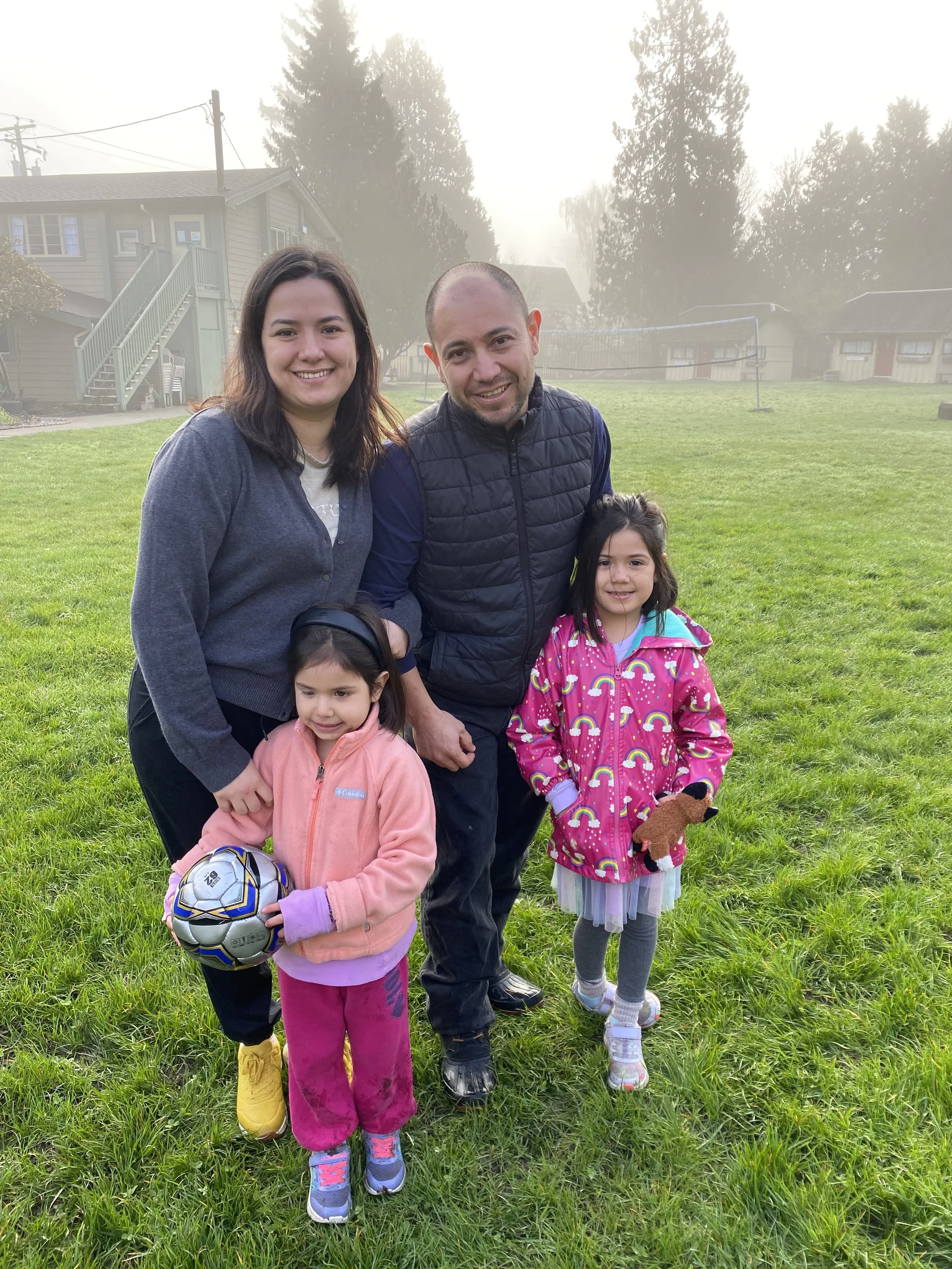Early Intervention Services
Blind Beginnings works with children ages birth to school entry, along with their families and community team to support development and learning.
Funded through the British Columbia Ministry of Children and Family Development, our Early Intervention services provide specialized support during the most formative years of a child’s development. Our services are designed to address the unique needs of children with visual impairments, ensuring they develop essential skills such as mobility, communication, and social interaction.
By introducing adaptive techniques and assistive technologies early, our services help children achieve developmental milestones alongside their sighted peers. Early intervention also supports families, offering them guidance and resources to effectively support their child’s growth and independence. Ultimately, these services enhance the child’s ability to navigate their environment, build confidence, and develop the foundation for future educational and social success.
Our Early Intervention services include in-home appointments, professional consultation with service providers, and collaboration with stakeholders to ensure the child and families needs are met.
Who can Qualify for Services?
Children must be between the ages of 0 – 5 years old at the time of referral.
Must be a resident of British Columbia
Your child must have a suspected or diagnosed vision impairment or dual sensory loss of vision and hearing.
We recommend a medical report from an ophthalmologist or neurologist verifying vision impairment.
How To Apply for Early Intervention Services
Acceptance into our Early Intervention Services begins with a Referral. Referrals may be made by: pediatric ophthalmologists, neurologists, area hospital personnel and specialists, early intervention specialists, service coordinators and family members.
If a parent has concerns about their child’s visual development, we recommend the child sees a pediatric ophthalmologist prior to beginning the referral process.
Knowing what to do if you have concerns about your child’s vision can be overwhelming. We’re here to help make the process easier.
Fill out our online referral form to begin the process.
If you are unsure if you qualify for Early Intervention Services or have any other questions, email shawn@blindbeginnings.ca.
Once your referral has been received, our Care Coordinator will be in touch within 72 hours.
Early Intervention Programs
STEP (Safe Travel Education for Pre-Schoolers)
The STEP Program, which stands for Safe Travel Education for Pre-schoolers, is Blind Beginnings’ one-of-a-kind summer program designed to teach foundational mobility and independence skills to preschool-aged children who are blind or partially sighted. This program aims to empower children to take their first independent steps, both literally and figuratively, by helping them learn to move safely and independently, build body and spatial awareness, gain confidence in everyday environments, and explore the world like their sighted peers.
The STEP program was developed to address a significant gap: the lack of Orientation & Mobility (O&M) training and services for young children with visual impairments and their families. Developmentally, children with visual impairments or blindness can be 1 to 18 months behind their sighted peers in movement skills and age-appropriate, safe travel, leading to less confidence and initiative to explore their surroundings.
Early Intervention Family Retreats
Our Family Retreats are focused on early intervention and are designed to provide families much needed resources while bringing families together and creating new friendships and bonds and much needed social networks and support systems. These weekend long retreats have historically taken place at various locations in BC, from the Okanagan to Vancouver Island.
Parents receive information that address a variety of issues relevant to parenting a child who is blind or partially sighted including: braille and early literacy, social skill development, early movement & orientation & mobility, establishing routines in daily living skills, and more. Parents also meet other parents in their community and build an essential network of support.





